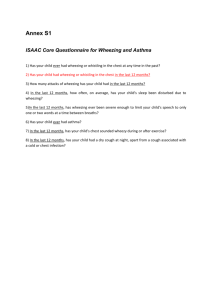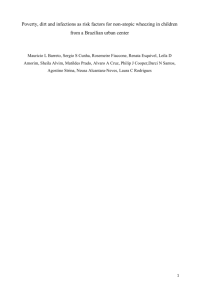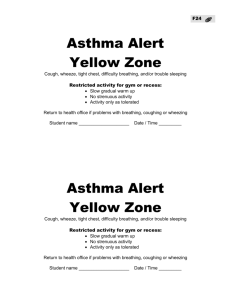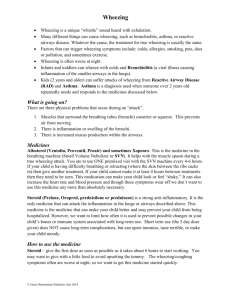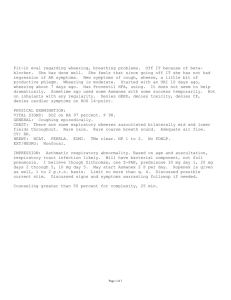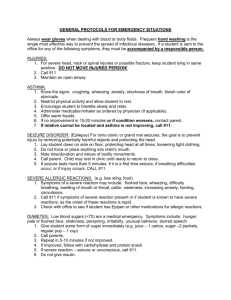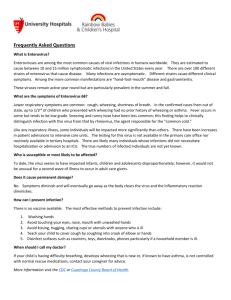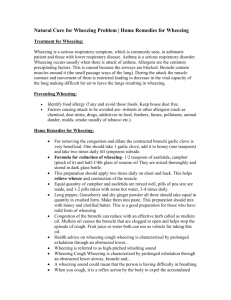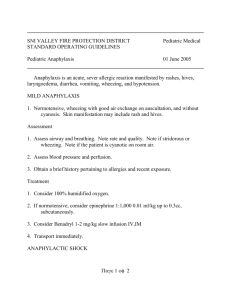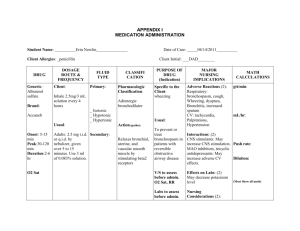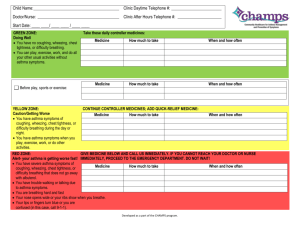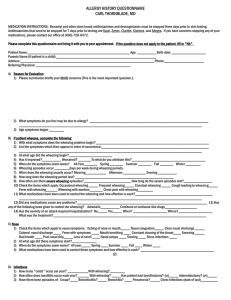Wheezing Handout - Associates in Pediatrics
advertisement
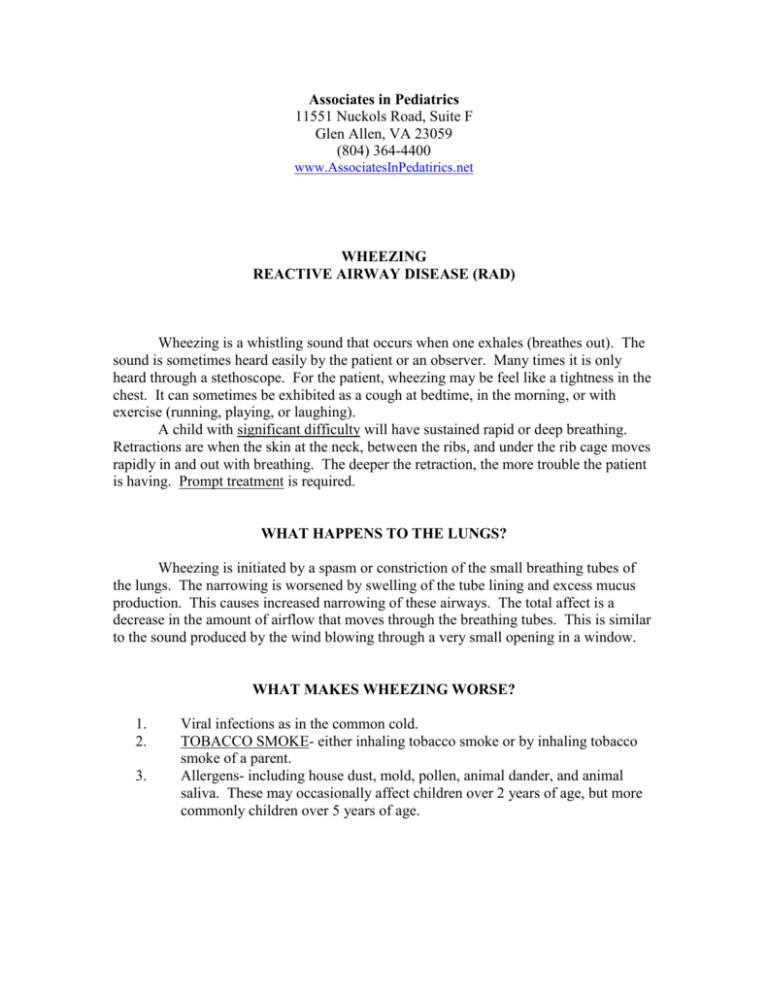
Associates in Pediatrics 11551 Nuckols Road, Suite F Glen Allen, VA 23059 (804) 364-4400 www.AssociatesInPedatirics.net WHEEZING REACTIVE AIRWAY DISEASE (RAD) Wheezing is a whistling sound that occurs when one exhales (breathes out). The sound is sometimes heard easily by the patient or an observer. Many times it is only heard through a stethoscope. For the patient, wheezing may be feel like a tightness in the chest. It can sometimes be exhibited as a cough at bedtime, in the morning, or with exercise (running, playing, or laughing). A child with significant difficulty will have sustained rapid or deep breathing. Retractions are when the skin at the neck, between the ribs, and under the rib cage moves rapidly in and out with breathing. The deeper the retraction, the more trouble the patient is having. Prompt treatment is required. WHAT HAPPENS TO THE LUNGS? Wheezing is initiated by a spasm or constriction of the small breathing tubes of the lungs. The narrowing is worsened by swelling of the tube lining and excess mucus production. This causes increased narrowing of these airways. The total affect is a decrease in the amount of airflow that moves through the breathing tubes. This is similar to the sound produced by the wind blowing through a very small opening in a window. WHAT MAKES WHEEZING WORSE? 1. 2. 3. Viral infections as in the common cold. TOBACCO SMOKE- either inhaling tobacco smoke or by inhaling tobacco smoke of a parent. Allergens- including house dust, mold, pollen, animal dander, and animal saliva. These may occasionally affect children over 2 years of age, but more commonly children over 5 years of age. WHAT TREATS WHEEZING? 1. 2. Relieving the constriction by inhaled medications which are bronchodilators (albuterol or Xopenex). Relieving the swelling of the tubes with steroids such as prednisone (Orapred). WHAT PREVENTS WHEEZING? 1. Avoiding the irritants listed above that make wheezing worse. No smoking around coughing kids!! 2. Preventing future episodes of wheezing with medications such as Singulair, Pulmicort, Advair, or Flovent. 3. Allergy evaluation when indicated.
